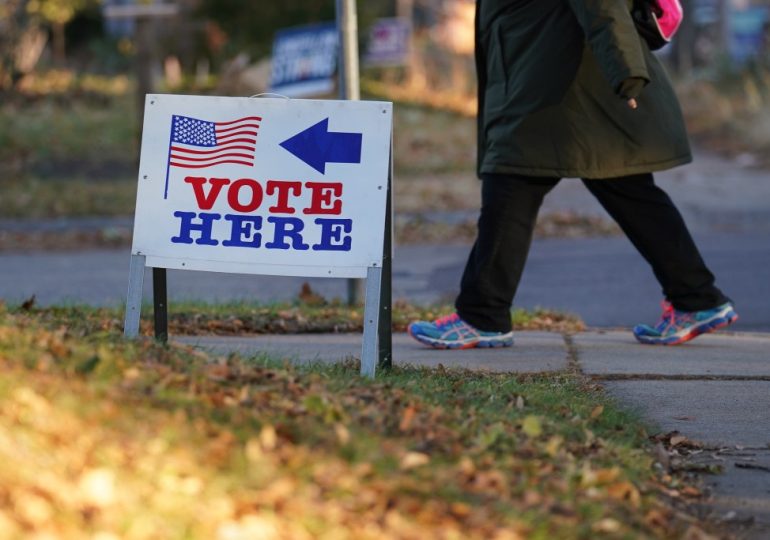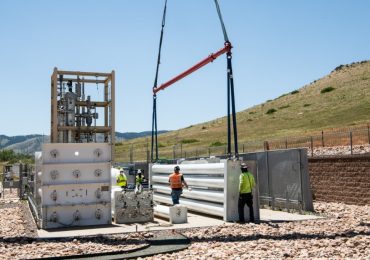This commentary was submitted by Holly Caggiano, Ph.D., assistant professor in the School of Community and Regional Planning at the University of British Columbia, and Sara Constantino, Ph.D., assistant professor in the Psychology Department and the School of Public Policy and Urban Affairs at Northeastern University. See our commentary guidelines for more information.
After paying our monthly utility bills, most of us take for granted the complex network of infrastructure and institutions that keep the lights on. This is changing. The average monthly electricity bill for residential customers nationally increased 13% from 2021 to 2022, rising from $121 to $137 a month, while climate change and aging and mismanaged electrical infrastructure have contributed to a string of disastrous wildfires. Confronted with rising costs of living and the urgent need to protect the environment, people across the country are taking a serious look at how their utilities are owned and operated.
Electric utilities, which can act as generators, distributors and/or service providers, play a key role in the transition from fossil fuels to renewable energy. For decades, a small number of for-profit, investor-owned utilities (IOUs) have powered most of the country. On November 7th, Maine challenged this model with Ballot Question 3, The Pine Tree Power initiative, proposing a transformation of the state’s two largest IOUs into a non-profit, democratically-managed public utility.
Before the vote, the Washington Post dubbed Maine the “epicenter” of the nation’s growing anger with electric utilities. Customer approval ratings of Central Maine Power (CMP) and Versant–the state’s two largest IOUs, owned by parent companies in Spain and Canada–are among the lowest in the country, but Maine is just one of an increasing number of states where people are raising concerns. Groups across the country have called for public takeover of IOUs, claiming investors prioritize profit over system maintenance, disregard consumer safety, and delay climate action.
While many IOUs have embraced climate action on paper, their actions say otherwise. One recent study found that electric utilities have pushed climate delay, doubt, and denial over multiple decades, promoting messaging explicitly designed to absolve inaction. Reporting also reveals widespread corruption and attempts to halt regulation to encourage clean energy and reduce ratepayer costs. Climate activism group 350.org labeled CMP one of the biggest anti-climate lobbyists in Maine.
IOUs have also been implicated in destructive and deadly wildfires. Hawaiian Electric Company recently acknowledged responsibility for the Maui wildfires—they failed to shut off power despite high winds and dry conditions. California’s PG&E narrowly avoided a trial on manslaughter charges for their role in the 2020 Zogg fire that killed four. IOUs know that the public is worried by their questionable safety records, responding with expensive PR campaigns. These tactics come from an old playbook. In The Big Myth, Erik M. Conway and Naomi Oreskes describe 1920s propaganda campaigns to push privatization that ushered in higher rates for homeowners and bigger profits for corporations. A century later, we’re back to questioning this model.
Private utilities in Maine spent millions lobbying against the ballot initiative and the governor was vocally opposed. We ran a survey with the Climate and Community Project to learn more about how Mainers were feeling in the lead up to the vote. We found that Mainers are overwhelmingly concerned about keeping the lights on, with 88% of respondents very or somewhat worried about current and future energy costs. And despite the lobbying efforts of the private utilities, most respondents believe that their utilities should be locally owned and operated (55%) and not-for-profit (66%).
While these sentiments weren’t reflected in the election results, the reasons are nuanced. Our data suggests that many Mainers weren’t rejecting public-ownership itself, but were looking for a more fully realized plan, citing ambiguities about how the takeover would be financed, if costs would be passed to consumers, and if it would hold up in court—67% of our respondents thought it was somewhat or very likely that Pine Tree would face legal and regulatory challenges.
Despite investor-owned utilities pouring money into campaigns to oppose public power, there is growing momentum to reconsider how our power systems are owned and operated. One recent success is New York’s Build Public Renewables Act, which passed into law in May. After four years of organizing by Public Power NY, a coalition of more than twenty community organizations, the law authorizes the New York Power Authority to build renewable energy projects that help meet the state’s climate goals and include strong labor standards. Municipalization of utilities is also a hot topic in Western states, with ongoing organizing in California and Texas.
Some supporters of the Pine Tree Power campaign hoped that a win would fuel more initiatives across the country. In our poll, 41% of respondents thought it was somewhat or very likely that if passed, Pine Tree Power would spark a larger cross-state movement towards public ownership of energy resources. Despite Mainers choosing to stick with their current model for now, the ballot initiative brought national attention to the issue and has encouraged many to question the status quo. Rather than signaling the end of the road for public power in Maine, this vote could be the beginning of a sustained conversation about transforming our utilities. The research, organizing and discussions that went into the Pine Tree campaign provide a foundation for future efforts to improve the service, safety and sustainability of our energy infrastructure—and start to shift the energy narrative about what is possible, and desirable.
In Maine, we saw how the movement for public power united people across demographic and party lines. Rural or urban, Democrat or Republican, we all deserve access to clean, affordable, and reliable electricity. Climate change is forcing us to reconsider how we produce energy but it doesn’t need to stop there. This is an opportunity to reimagine who owns energy infrastructure and whose interests it serves.
Commentary: Despite Maine defeat, public power still on the agenda in the U.S. is an article from Energy News Network, a nonprofit news service covering the clean energy transition. If you would like to support us please make a donation.
Leave a comment









